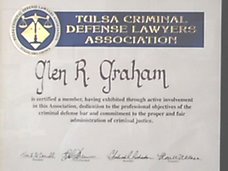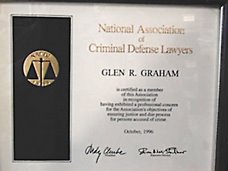The Philosophy of Tao Te Ching
(Useful information for the Warrior - Trial Lawyer - Advocacy Skills - Self -Control & Knowledge)
Chapter 43
The softest thing in the world dashes against and overcomes the hardest; that which has no (substantial) existence enters where there is no crevice. I know hereby what advantage belongs to doing nothing (with a purpose). There are few in the world who attain to the teaching without words, and the advantage arising from non-action.
Chapter 56
He who knows (the Tao) does not (care to) speak (about it); he who is (ever ready to) speak about it does not know it. He (who knows it) will keep his mouth shut and close the portals (of his nostrils). He will blunt his sharp points and unravel the complications of things; he will attemper his brightness, and bring himself into agreement with the obscurity (of others). This is called 'the Mysterious Agreement.' (Such an one) cannot be treated familiarly or distantly; he is beyond all consideration of profit or injury; of nobility or meanness:--he is the noblest man under heaven.
Chapter 57
A state may be ruled by (measures of) correction; weapons of war may be used with crafty dexterity; (but) the kingdom is made one's own (only) by freedom from action and purpose. How do I know that it is so? By these facts:--In the kingdom the multiplication of prohibitive enactments increases the poverty of the people; the more implements to add to their profit that the people have, the greater disorder is there in the state and clan; the more acts of crafty dexterity that men possess, the more do strange contrivances appear; the more display there is of legislation, the more thieves and robbers there are. Therefore a sage has said, 'I will do nothing (of purpose), and the people will be transformed of themselves; I will be fond of keeping still, and the people will of themselves become correct. I will take no trouble about it, and the people will of themselves become rich; I will manifest no ambition, and the people will of themselves attain to the primitive simplicity.'
Chapter 58
The government that seems the most unwise,
Oft goodness to the people best supplies;
That which is meddling, touching everything,
Will work but ill, and disappointment bring.
Misery!--happiness is to be found by its side!
Happiness!--misery lurks beneath it! Who knows what either will come to in the end?
Shall we then dispense with correction? The (method of) correction shall by a turn become distortion, and the good in it shall by a turn become evil.
The delusion of the people (on this point) has indeed subsisted for a long time. Therefore the sage is (like) a square which cuts no one (with itsangles); (like) a corner which injures no one (with its sharpness). He is straightforward, but allows himself no license; he is bright, but does not dazzle.
Chapter 65
The ancients who showed their skill in practising the Tao did so, not to enlighten the people, but rather to make them simple and ignorant. The difficulty in governing the people arises from their having much knowledge. He who (tries to) govern a state by his wisdom is a scourge to it; while he who does not (try to) do so is a blessing. He who knows these two things finds in them also his model andrule. Ability to know this model and rule constitutes what we call the mysterious excellence (of a governor). Deep and far-reaching is such mysterious excellence, showing indeed its possessor as opposite to others, but leading them to a great conformity to him.
Chapter 15
The skilful masters (of the Tao) in old times, with a subtle and exquisite penetration, comprehended its mysteries, and were deep (also) so as to elude men's knowledge. As they were thus beyond men's knowledge, I will make an effort to describe of what sort they appeared to be. Shrinking looked they like those who wade through a stream in winter; irresolute like those who are afraid of all around them; grave like a guest (in awe of his host); evanescent like ice that is melting away; unpretentious like wood that has not been fashioned into anything; vacant like a valley, and dull like muddy water. Who can (make) the muddy water (clear)? Let it be still, and it will gradually become clear. Who can secure the condition of rest? Let movement go on, and the condition of rest will gradually arise. They who preserve this method of the Tao do not wish to be full (of themselves). It is through their not being full of themselves that they can afford to seem worn and not appear new and complete.
Chapter 78
There is nothing in the world more soft and weak than water, and yet for attacking things that are firm and strong there is nothing that can take precedence of it;--for there is nothing (so effectual) for which it can be changed. Every one in the world knows that the soft overcomes the hard, and the weak the strong, but no one is able to carry it out in practice. Therefore a sage has said, 'He who accepts his state's reproach,
Is hailed therefore its altars' lord;
To him who bears men's direful woes
They all the name of King accord.
'Words that are strictly true seem to be paradoxical.
Chapter 76
Man at his birth is supple and weak; at his death, firm and strong. (So it is with) all things. Trees and plants, in their early growth, are soft and brittle; at their death, dry and withered. Thus it is that firmness and strength are the concomitants of death; softness and weakness, the concomitants of life. Hence he who (relies on) the strength of his forces does not conquer; and a tree which is strong will fill the out-stretched arms, (and thereby invites the feller.) Therefore the place of what is firm and strong is below, and that of what is soft and weak is above.
Chapter 71
To know and yet (think) we do not know is the highest(attainment); not to know (and yet think) we do know is a disease. It is simply by being pained at (the thought of) having this disease that we are preserved from it. The sage has not the disease. He knows the pain that would be inseparable from it, and therefore he does not have it.
Chapter 69
A master of the art of war has said, 'I do not dare to be the host (to commence the war); I prefer to be the guest (to act on the defensive). I do not dare to advance an inch; I prefer to retire afoot.' This is called marshalling the ranks where there are no ranks; baring the arms (to fight) where there are no arms to bare; grasping the weapon where there is no weapon to grasp; advancing against the enemy where there is no enemy. There is no calamity greater than lightly engaging in war. To do that is near losing (the gentleness) which is so precious. Thus it is that when opposing weapons are (actually) crossed, he who deplores (the situation) conquers.
Philosophy of Tao Te Ching - Useful Information for the Warrior - Lawyers Advocacy Skills
Subscribe to:
Post Comments (Atom)




No comments:
Post a Comment